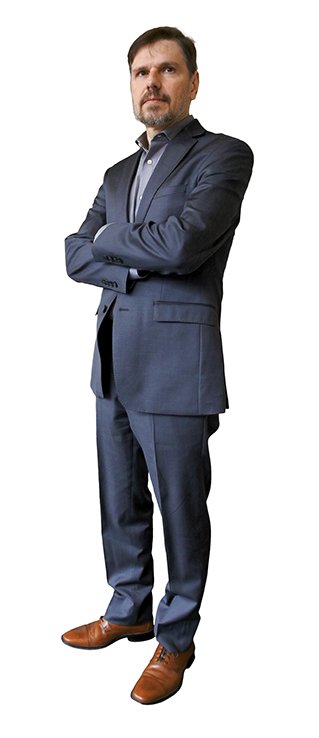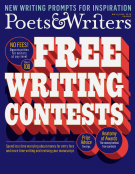In November the Library of America (LOA), the nonprofit publisher of classic American literature, named John Kulka its new editorial director. Succeeding longtime editor in chief Geoffrey O’Brien, who retired at the end of 2017, Kulka previously worked at Yale University Press, Harvard University Press, and Basic Books. In his new role at the LOA, Kulka oversees all of the publisher’s titles, including the Library of America standard series, which comprises more than three hundred volumes of classic and historical literature and scholarship and has been called the “de facto canon of American literature” by the New York Times. A few months into his new position, Kulka discussed editing the series and what’s ahead for LOA’s editorial program.

(Credit: Murray Greenfield )
What are your responsibilities at the LOA?
The LOA has always been a special publisher with a special mission. Our broader, nonprofit mission is to reconnect readers through education programs and community outreach. I’m responsible for guiding the editorial program: the Library of America standard series, which issues essential American writing in authoritative editions, and our special non-series books, like David Foster Wallace’s tennis essays, String Theory. The LOA publishes reliable editions. They are uncluttered. The mission is to build the national library of American writings—canonical, neglected literature, historical writings. It’s one of the most important undertakings in the history of American publishing.
How do you choose what to publish?
How we publish any given author is always a tricky calculus. Looking at a writer with a voluminous body of work, are we better off being selective or comprehensive? It varies from author to author. Sometimes it’s not an issue. Flannery O’Connor, for example: The stories, novels, and all the nonfiction—if we exclude the letters—fit neatly into a single volume. But I’m thinking now about publishing an edition of Constance Fenimore Woolson, wrongly neglected, whom Henry James saw as a significant nineteenth-century writer. Woolson is a revelation to me: I had always known who she was because of James, but do yourself a favor and look at her short fiction. Is the LOA better off publishing one volume, two volumes, or everything we have of hers? That’s a question I’m faced with. Though a larger selection might be of interest to scholars, I’m not entirely sure that it’s the right thing to do in presenting her work to a general audience.
How does the LOA remain relevant today?
This is a weird time we’re living in. The proliferation of fake news, inequality, a presentist disregard for the past—in such times, we need the LOA more than ever. Our history and literature still have much to teach us. We ignore it only at our peril. As Faulkner put it, “The past is never dead. It’s not even past.” I believe that. Here’s an example: When Lin-Manuel Miranda was writing Hamilton, it was the LOA’s edition of Hamilton’s writings that Miranda used as a resource. The musical in turn brought readers back to Hamilton. We published a brief paperback, The Essential Hamilton, in 2017 that we then put gratis into the hands of educators around the country.
What has been the most unexpected thing you’ve learned about LOA since you arrived?
I’ve been repeatedly impressed by the amount of research and scholarship that sometimes goes into these volumes. Literally at my feet right now are three or four oversized cardboard boxes that represent the outtakes from the American Poetry Anthology—and just the two volumes devoted to the twentieth century. There’s so much research and scholarship that goes into production. It’s kind of a humbling thing.
Adrienne Raphel is the author of What Was It For (Rescue Press, 2017) and But What Will We Do (Seattle Review, 2016). Her work has appeared in the New Yorker, the Paris Review Daily, Lana Turner, Prelude, and elsewhere.








